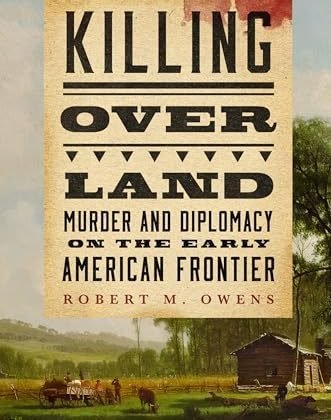

Robert M. Owens is Professor of History at Wichita State University. This interview is based on his new book, Killing Over Land: Murder and Diplomacy on the Early American Frontier (University of Oklahoma Press, 2024).
JF: What led you to write Killing Over Land?
RO: I wrote Killing Over Land: Murder and Diplomacy on the early American Frontier, after looking at Indian affairs more broadly, and noticing how often intercultural murders provided opportunities not just for the bloodthirsty and greedy, but also for skillful mediators who tried to prevent all-out wars.
JF: In 2 sentences, what is the argument of Killing Over Land?
RO: Killing Over Land examines how interracial homicides shaped Indian affairs in early America. Though both groups sometimes murdered the other to stoke/prolong conflict, paradoxically murders often provided a path to diplomacy and reconciliation.
JF: Why do we need to read Killing Over Land?
RO: Unfortunately, intercultural murder, settler colonialism, and violent human conflict are not simply historical questions. They play out around the world on a daily basis. Killing Over Land illustrates how, even in the most awful situations, diplomacy remains possible.
JF: Why and when did you become an American historian?
RO: In my sophomore year of college I decided to pursue becoming a professor of American history. I was a Ph.D. candidate in History at the University of Illinois beginning in 1996, and graduated in 2003. I joined the faculty at Wichita State in 2004.
JF: What is your next project?
RO: My current project explores how early Americans treated the ‘other’ – Native Americans, African Americans, and social outliers – friends and foes, in death. The way they honored dead friends and allies, and posthumously punished dead enemies, says a lot about the way Americans viewed the world, and their place in it.
JF: Thanks, Robert!